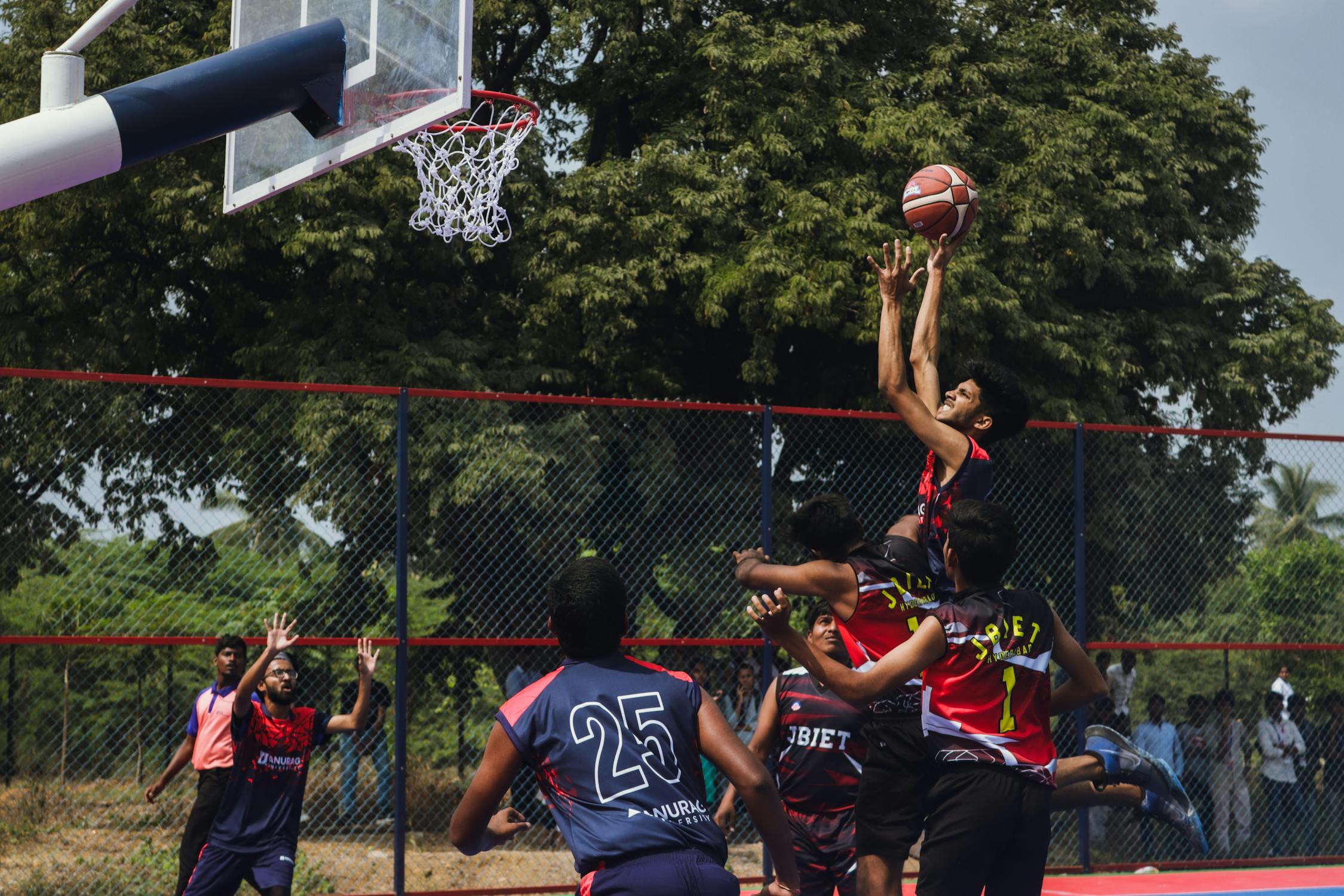How Small Schools Are Making Big Waves in Basketball
Big schools often grab the spotlight in basketball, but have you noticed how small schools are stealing the show lately? These teams might not have massive budgets or star-studded rosters, but they’re proving size isn’t everything.
They’re pulling off shocking upsets, producing incredible talent, and redefining what it means to compete at the highest level.
It’s like realizing that when you’re overwhelmed with assignments, need help writing a paper to ease the load—you don’t need a big name, just the right strategy. Small schools are rewriting the rules, and they’re doing it with determination, teamwork, and a little bit of magic.
Let’s dive into how these underdogs are shaking up the basketball world.

Rising Above Expectations
Small schools often start the season overlooked by analysts and fans. They don’t have the flashy facilities or high-profile recruits, but that doesn’t mean they can’t compete. On the contrary, they use their underdog status as motivation.
Teams like Loyola Chicago and their famous 2018 Final Four run remind us that heart can outshine hype. With disciplined plays and a refusal to back down, these teams catch opponents off guard.
What’s even more impressive is how these schools create a culture of belief. Coaches push their players to ignore the rankings and focus on what they can control—hard work, smart play, and seizing opportunities. When everyone believes in the mission, anything feels possible.
A Focus on Teamwork
Unlike big schools that often rely on a single star player, small schools thrive on teamwork. Every player matters, and success comes from working as one unit.
Take Saint Peter’s during their 2022 Cinderella run. They didn’t rely on one superstar; they had a lineup of players willing to step up when it mattered.
This focus on teamwork is what makes small-school basketball so exciting. You never know who will have the hot hand or deliver the game-winning play. It’s a reminder that basketball isn’t just about individual talent—it’s about how well a team can work together to achieve a common goal.
Strong Coaching Makes a Difference
Behind every successful small-school basketball team is a coach who knows how to get the best out of their players. Coaches at these schools often have to be creative, using strategies and tactics to level the playing field against bigger programs.
They might focus on strong defense, quick transitions, or unconventional lineups to keep their opponents guessing.
Coaches like Gregg Marshall, who led Wichita State to the Final Four in 2013, show how a smart game plan can make all the difference. They don’t just teach basketball skills—they inspire confidence and resilience.
For small schools, having the right leader at the helm is often the key to their success.
Talent Can Be Found Anywhere
It’s easy to assume that top basketball talent only comes from big programs, but small schools have proven that’s not true.
Players like Damian Lillard (Weber State) and CJ McCollum (Lehigh) are perfect examples. These athletes didn’t go to powerhouse schools, but their talent and determination helped them make it to the NBA.
Small schools often give players opportunities they wouldn’t get elsewhere. Without the pressure of competing with a roster full of future NBA stars, players can develop their skills at their own pace. By the time they hit the court, they’re ready to shine.
Fan Support Creates Electric Atmospheres
One of the coolest things about small-school basketball is the fan base. Without the distractions of bigger programs, small schools often have tight-knit communities that rally around their teams. Students, alumni, and locals pack the stands and bring incredible energy to games.
These fans don’t just watch—they’re part of the action. Whether it’s storming the court after a big win or chanting creative cheers to distract opponents, small-school crowds know how to make their presence felt.
This passion fuels the players and creates unforgettable moments for everyone involved.
The Power of Underdog Stories
There’s something magical about watching a small school go up against a basketball giant and come out on top. These underdog stories make college basketball amazing, too. They remind us that anything is possible with enough grit and determination.
Think about UMBC’s historic upset over Virginia in 2018. As the first 16th seed to ever beat a No. 1 seed, they shocked the world and proved that rankings don’t always tell the full story. These moments inspire players and fans alike, showing that dreams really can come true.
Building Programs From the Ground Up
Many small schools have had to build their basketball programs from scratch. It takes years of dedication, fundraising, and recruiting to create a competitive team. But once they establish a winning culture, momentum can carry them far.
Schools like Gonzaga are a great example. Once considered a small program, they’ve built themselves into a perennial powerhouse. Through smart recruiting, excellent coaching, and consistent success, they’ve proven that even the smallest schools can achieve big things.
Balancing Athletics and Academics
Small schools are also known for emphasizing the balance between athletics and academics. While winning games is important, many of these programs focus on developing well-rounded individuals. Players are often encouraged to excel in the classroom as much as on the court.
This focus on academics sets small schools apart from their bigger counterparts. It shows that basketball can be about more than just the game—it can be a stepping stone to a brighter future.
Final Thoughts
Small schools are proving that in basketball, size doesn’t matter as much as heart, teamwork, and determination. They’ve shown us that talent can come from anywhere, and with the right leadership and community support, even the smallest programs can achieve greatness.
From stunning upsets to breakout stars, small-school basketball reminds us why we love the sport in the first place. These teams aren’t just competing—they’re inspiring.
So, the next time you watch a game, keep an eye on the underdogs. You never know when they’ll pull off the next big surprise.




